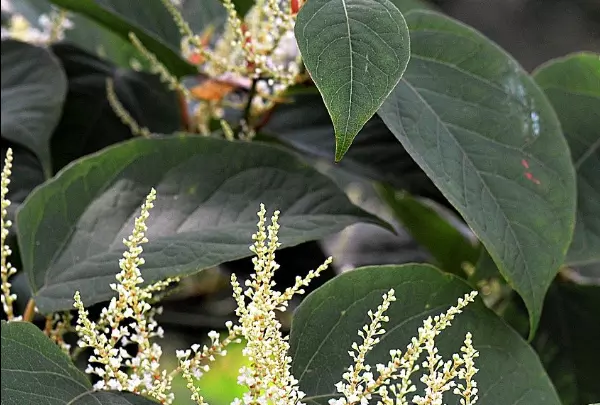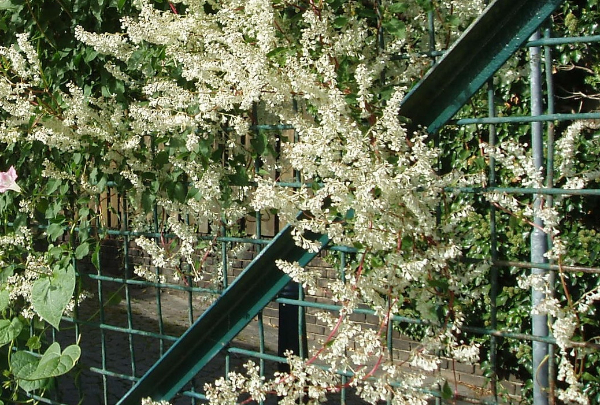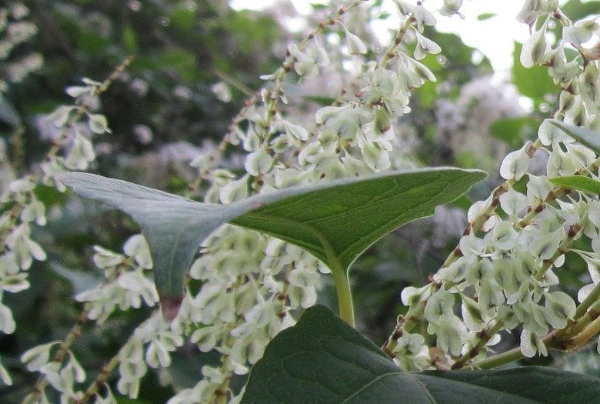Is having Japanese knotweed a Criminal Offence?
Japanese Knotweed and the Law
Invasive plant species have become a growing issue in the UK, especially Japanese knotweed. The weeds ability to spread and grow quickly has led to the introduction of several Japanese knotweed laws and regulations regarding growth, control and disposal. These laws protect the environment, businesses and homeowners.
Japanese knotweed is legally classed as a controlled plant under the Wildlife and Countryside Act 1981, it is not illegal to have Japanese knotweed on your land, but you can be prosecuted or given a community protection notice for allowing or causing the plant to spread in the wild and even for allowing the knotweed to spread to the neighbouring land next to your property.
Homeowner's that fail to control Japanese knotweed on their property can also face a £2,500 fine.
This is because of laws that have been added to pre-existing laws relating the anti-social behaviour orders and combine with previous legislation such as the Wildlife and Countryside Act 1981 and the Environmental Protection Act 1990.
If you have bought a property with the knowledge of an infestation, then you will be liable for the costs as your home insurance will most likely not cover the Japanese knotweed removal.

If however if you have found the knotweed on the property after the survey, or it was not stated on the TA6 report, then you may be able to claim against the surveyor or the previous property owner for the total costs or removing the Japanese knotweed as they had the responsibility of making you aware.
Laws Controlling Japanese Knotweed
The Anti-social Behaviour Crime and Policing Act 2014 includes the negligent cultivation of invasive plants, and the Japanese knotweed falls under this category.
This gives police and local authorities the power to issue individuals or businesses with notices under the act. These notices would only be handed to those who continually act in a way that has a detrimental effect on the quality of life of those in the area.
It would require the individual to make efforts to remove the knotweed from their land and prevent it from returning. Failure to do this without a reasonable excuse will result in a fixed penalty notice or prosecution and be treated as a criminal offence.
This act is one of the main legislation that controls the Japanese knotweed. It clearly outlines the correct methods to remove, transport and dispose of the controlled waste.
The controlled waste is any plant materials or soil that has been contaminated with Japanese knotweed. If you fail to dispose of the contaminated waste following the correct procedure, you could be left with a hefty fine.
The Environmental Protection Act 1990 is supported by the Wildlife and Countryside Act 1981, which states that if a person plants or causes to grow Japanese knotweed in the wild, they will be guilty of an offence.
The offence could result in either 6 months of imprisonment or a £5000 fine; for more serious cases, 2 years imprisonment and/or an unlimited fine. The extent of these punishments may seem extreme.
Still, it shows how seriously the law takes the spread of Japanese knotweed, and the threat of the penalty in most cases prevents individuals from allowing the spread or planting of the knotweed.
What to do if you find Japanese knotweed on your property?
Finding Japanese knotweed on your property can be quite worrying if you're aware of how quickly it can spread, but there's no need to panic. Here are a few tips advising what to do if you find Japanese knotweed on your property.
If you suspect the invasive weed has spread onto your property from a separate piece of land, seek legal advice on your rights, you could be eligible for a claim to cover the costs of damage and removal of the knotweed.
Isolate the area where the Japanese knotweed is. This will prevent the rhizomes from contaminating other vegetation in your garden or even spreading onto neighbours land, which will cause further legal issues.
It's important to note that you aren't legally obliged to remove Japanese knotweed if it is only on your property, but you are required to prevent it from spreading.

If you decide to remove the Japanese knotweed, the most simple and easy way to do it without the assistance of a professional is to spray with chemicals. The chemicals you choose must only be approved herbicides.
The person spraying the chemicals must be protected with a mask, gloves and a hazard suit, and it will take at least 3 years for the Japanese knotweed to be permanently removed.
Once you have completely removed the Japanese knotweed from your property, there are several ways to dispose of it, one of them being to burn the weeds.
To do this, you will need to ask your local council if you are allowed to burn the Japanese knotweed waste, the only part that can survive the burning is the rhizomes and the crown, which belong to the plant's root.
To dispose of these, you are held responsible for treating them as 'controlled waste' and transfer them using a registered waste carrier. The waste should then be taken to a licensed landfill site, not disposed of in the household waste bin.
Do you have to notify anyone about Japanese knotweed?
If you have been recently made aware of Japanese knotweed on your property or land, you are not required to make authorities or neighbours aware, that is, unless you are planning to sell the property in the near future.
In this case, you must declare the presence of Japanese knotweed when filling out the Law Society's TA6 form. If you don't, you may be liable for the costs of removal and further criminal offences.
You may also be liable for costs if you allow the plant to spread to a neighbours garden. To reduce the chances of this, get in touch with a removal specialist to get rid of the weed and surrounding affected areas permanently.
Japanese Knotweed spreading from a neighbour's garden
A land or property owner with knotweed on the premises can also be issued with a service notice by local authorities.
This would require them to remove the knotweed that could negatively affect surrounding areas and then dispose of it correctly. Failure to do this can result in criminal liabilities.
If you suspect that the sudden sprout of the invasive non-native Japanese knotweed in your garden has spread from neighbouring property, they could be liable for the costs of damages due to negligence or inaction.
The knotweed doesn't have to physically cause any damage to the property or the garden. The mere fact that the neighbour has allowed it to spread or that the knotweed is in close proximity is enough reason for legal action.
You, as a neighbour, could then issue private nuisance proceedings in the civil courts for one or more of the following; the cost of removal, an injection again re-infestation, damages for loss of enjoyment and diminution of value.

Japanese Knotweed legal disputes
An increasing number of people are taking their neighbours, surveyors or even businesses to court to settle legal disputes over the spread of Japanese Knotweed.
The first successful documented case law for private nuisance concerning Japanese knotweed was in 2018. Since then, the number of claims for professional negligence, misrepresentation and private nuisance has been more common. Here you will find a few of these successful cases.
Initially, it was found that both of the properties belonging to Williams & Waistell had been subject to actual encroachment by knotweed coming from the Network Rail land. However, there was no physical damage, so, therefore, no nuisance.
However, both properties had suffered a devaluation in their market value due to the constant presence of knotweed on the Railway line that interfered with their property.
After an appeal, the court decided that the initial judgement was wrong as the knotweed was present within 7 meters of the claimants land and was an actionable nuisance because it reduced the market value of the properties.
The original damage caused and the market value devaluation costs were then awarded to Williams & Waistell.
Ryb requested a survey be done on their building by Conway's Chartered Surveyors. During this survey, the defendant found there to be no Japanese knotweed on the property.
It was later found that the defendant failed to report Japanese knotweed during the level 3 building survey giving rise to a professional negligence claim against them.
During the trial, expert evidence explained that the Japanese knotweed was clearly visible and should have been reported in the survey. The defendant was ordered to pay £50,000 in damages for the treatment of the knotweed and the diminished value of the property.
Do you have a Japanese Knotweed problem? If you require Japanese Knotweed Removal in Essex or throughout the UK, contact our expert today.


